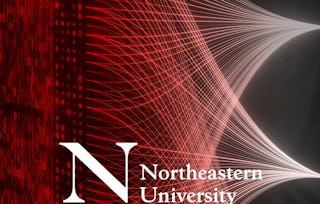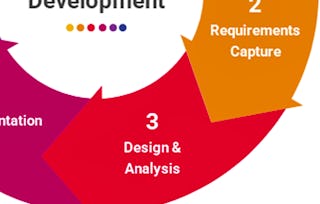In this course, you will learn about Agile software development, offering a practical understanding of the software development life cycle (SDLC) with a strong emphasis on Agile methodologies.

Agile Dev Practices: SDLC & Project Management

Agile Dev Practices: SDLC & Project Management

Instructor: Jacob Housman
3,365 already enrolled
Included with
19 reviews
Skills you'll gain
- Continuous Improvement Process
- Application Lifecycle Management
- Waterfall Methodology
- Software Development Methodologies
- Sprint Retrospectives
- User Story
- Scrum (Software Development)
- Agile Software Development
- Quality Management
- Agile Methodology
- Interpersonal Communications
- Cross-Functional Collaboration
- Software Development Life Cycle
- Agile Project Management
- Project Management
- Requirements Analysis
- Sprint Planning
- Skills section collapsed. Showing 7 of 17 skills.
Details to know

Add to your LinkedIn profile
18 assignments
See how employees at top companies are mastering in-demand skills

There are 4 modules in this course
In this module, we will explore how and why organizations implement agile methodologies to enhance daily work experiences, interactions, collaboration, adaptability, and overall job satisfaction. As an agile leader, it's important to understand these principles. This knowledge will equip you with the necessary skills to foster a dynamic and responsive work environment and empower you to lead engaged, adaptable teams.
What's included
5 videos9 readings5 assignments2 discussion prompts
In this module, you'll learn about organizational practices and Agile tools used to discuss implementation priorities in development teams. You'll explore Agile technical practices that are tailored to project needs. You'll examine Agile artifacts and learn how they create project transparency and teamwork. You’ll also develop the interpersonal skills you will need to collaborate and communicate in Agile software development contexts.
What's included
4 videos3 readings5 assignments
In this module, you’ll explore and compare predictive thinking, Waterfall, and Agile methodologies, with a special focus on their strategies for planning, execution, and adaptation. You'll gain insights into requirements engineering and how to apply them across project contexts. You’ll also cover techniques for gathering, documenting, and organizing requirements. We'll also explore the architectural and design principles of Agile methodologies. By the end of this module, you'll be able to make informed decisions, tailor strategies to specific project needs, and successfully steer Agile projects.
What's included
4 videos5 readings4 assignments1 discussion prompt
In this module, you'll explore software development life cycles (SDLC), and assess their suitability for different projects. You’ll learn more about capability maturity model integration (CMMI) which focuses on quality management.
What's included
3 videos3 readings4 assignments1 peer review1 discussion prompt
Instructor

Offered by
Explore more from Support and Operations
 Status: Preview
Status: PreviewNortheastern University
 Status: Preview
Status: PreviewNortheastern University
 Status: Free Trial
Status: Free TrialAmazon
 Status: Free Trial
Status: Free TrialThe Hong Kong University of Science and Technology
Why people choose Coursera for their career

Felipe M.

Jennifer J.

Larry W.

Chaitanya A.
Learner reviews
- 5 stars
84.21%
- 4 stars
15.78%
- 3 stars
0%
- 2 stars
0%
- 1 star
0%
Showing 3 of 19
Reviewed on Oct 13, 2024
Excellent course! I enjoyed the short lectures and reading material. Thanks!

Open new doors with Coursera Plus
Unlimited access to 10,000+ world-class courses, hands-on projects, and job-ready certificate programs - all included in your subscription
Advance your career with an online degree
Earn a degree from world-class universities - 100% online
Join over 3,400 global companies that choose Coursera for Business
Upskill your employees to excel in the digital economy
Frequently asked questions
To access the course materials, assignments and to earn a Certificate, you will need to purchase the Certificate experience when you enroll in a course. You can try a Free Trial instead, or apply for Financial Aid. The course may offer 'Full Course, No Certificate' instead. This option lets you see all course materials, submit required assessments, and get a final grade. This also means that you will not be able to purchase a Certificate experience.
When you purchase a Certificate you get access to all course materials, including graded assignments. Upon completing the course, your electronic Certificate will be added to your Accomplishments page - from there, you can print your Certificate or add it to your LinkedIn profile.
Yes. In select learning programs, you can apply for financial aid or a scholarship if you can’t afford the enrollment fee. If fin aid or scholarship is available for your learning program selection, you’ll find a link to apply on the description page.
More questions
Financial aid available,

